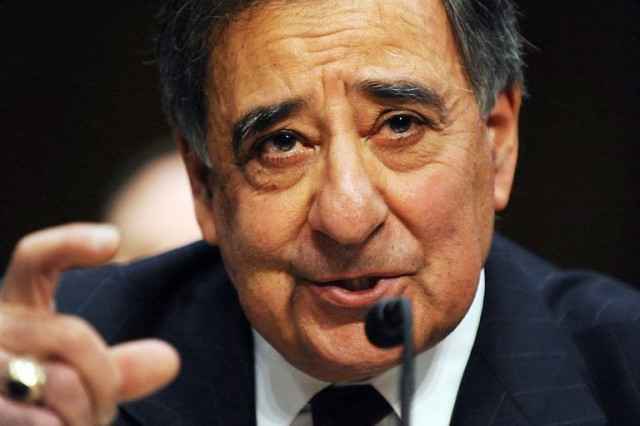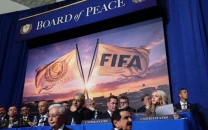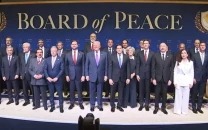US plans to halt Afghan combat role early surprise Kabul
US would stop taking the lead role in combat operations before the end of 2013, says US Defence Secretary.

US plans to halt Afghan combat role early surprise Kabul
US Defence Secretary Leon Panetta said late on Wednesday the US would stop taking the lead role in combat operations before the end of 2013 and step into a supporting role as it winds down its longest war.
He said US forces would remain "combat-ready" but would largely shift to a train-and-assist role as Afghan forces take over responsibility for security ahead of a 2014 deadline for full Afghan control.
The announcement, ahead of a meeting of Nato defence ministers in Brussels, was greeted with surprise in Kabul, where a senior Afghan security official said the move "throws out the whole transition plan".
"The transition has been planned against a timetable and this makes us rush all our preparations," the official said.
"If the Americans withdraw from combat, it will certainly have an effect on our readiness and training, and on equipping the police force," he said, adding that his government had not been informed of the change in plans.
Nato Secretary-General Anders Fogh Rasmussen insisted there was no change in Nato's plans and it expected responsibility for security to be handed over to the Afghan security forces by mid-2013 and for them to have full control at the end of 2014.
"It is of course of crucial importance that this change of role takes place in a coordinated manner," he said, emphasising that the changes of role would have to take into account "the actual security situation on the ground".
Classified report
Britain said on Thursday Nato's strategy has not changed and alliance forces will continue to operate in a combat role.
"They (Isaf forces) will be operating in 2014 in a combat role. But it will be a supporting role," a spokesman for Prime Minister David Cameron said, referring to the Nato-led International Security Assistance Force.
Britain has 9,500 troops in Afghanistan as part of the 130,000-strong Nato-led force. Cameron has announced that Britain will pull out 500 soldiers from Afghanistan this year but has not set out troop reduction plans beyond that. He plans to end Britain's combat role by the end of 2014, leaving some troops behind to train and mentor Afghan forces.
Panetta's announcement came just after British media published excerpts of a classified US report saying that the Taliban, allegedly backed by Pakistan, remained confident of regaining control in Afghanistan despite a decade of Nato efforts.
US officials said the timing of the transition to Afghan security lead would be discussed at Nato on Thursday and Friday. They said the process envisioned continued combat operations by coalition forces in support of the Afghans as needed.
"The idea we're discussing with our allies is to transition lead responsibility for combat operations to the Afghan National Security Forces, but Isaf forces would still be expected to conduct combat operations alongside our Afghan partners," a US defence official said on condition of anonymity.
Norwegian Defence Minister Espen Barth Eide said he was "not alarmed" by Panetta's remarks and "we should all now prepare for a decent transition".
A European Nato diplomat said Panetta's remarks were the first time he had gone on record with US plans "but it's not a change in Nato strategy".
"It is for the US to decide, but he has not said explicitly that the US will end its combat role in 2013. There will be a shift, but he hasn't said when the shift will end."
Concern among Afghans
The US, which led the Western invasion of Afghanistan in 2001, has previously said it would withdraw most combat troops by the end of 2014. Panetta said on Wednesday the US had not made any decisions on troop levels for 2013 but Washington did aim to withdraw its forces by the end of 2014.
"Our goal is to complete all of that transition in 2013 and then hopefully by mid- to the latter part of 2013 we'll be able to make a transition from a combat role to a training, advise-and-assist role," Panetta said.
A decision to end the US lead role in combat operations could give President Barack Obama an election-year lift by enabling him to point to progress in Afghanistan.
But Panetta's remarks about the transition have already drawn criticism from Obama's chief rival for the presidency and Republican lawmakers in Congress who worry the administration is moving before the Afghans are ready to take control.
The remarks also prompted concern among Afghans who fear a return to Taliban rule and hope that reconciliation between all parties would deliver a better alternative.
Hotel waiter Yama, 19, expressed alarm at the prospect of an early end to a US combat role. "Everything Afghanistan has built during the past years would be destroyed, robbed and sold to neighbouring countries," he said.
The US has been trying to draw the Taliban into reconciliation talks with the Afghan government. But a key part of its strategy has been to increase military pressure on the Taliban to persuade it to join peace talks.
Washington believes Afghanistan cannot be pacified without strong cooperation with Pakistan, but ties have been damaged by events, including the unilateral US raid that killed Osama bin Laden on Pakistani soil in May last year, and a Nato cross-border raid that killed 24 Pakistani soldiers in November 2011.
Pakistan Foreign Minister Hina Rabbani Khar said after a visit to Kabul this week that "a lot of ill will had faded".
While cautioning that a nascent peace process is far from producing breakthroughs, she said Islamabad would encourage insurgent groups like the Haqqani network and the Taliban to lay down their arms and pursue peace if asked by Afghanistan.



















COMMENTS
Comments are moderated and generally will be posted if they are on-topic and not abusive.
For more information, please see our Comments FAQ